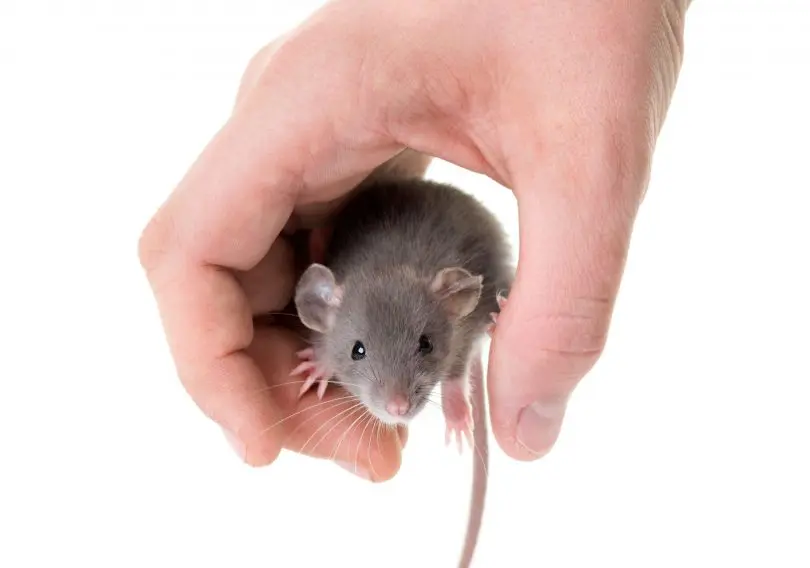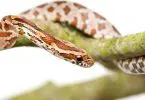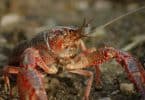Rats and mice are included in the rodent’s family, and the lifespan of a mouse is shorter. However, it also depends on the species on which the lifespan of the mice depends. Usually, the house rat can live for 9 to 12 months, whereas the deer mice can live for 2 to 14 months. The average lifespan of a white-footed mouse is 12 to 24 months. So, it also depends on the species on which life expectancy depends.
The cause of death in many rats and mice is cancer or kidney failure. If you are thinking of taking the mice or rat as a pet, then they are considered to be fun pets. The pet mice or rats are very social and active. Usually, it depends on your effort, time, and energy you spend on your pet mice. It determines how long he or she will live. In this article, our primary focus is on the lifespan of rats and mice. I hope this article will help you a lot in getting enough knowledge about how long do pet rats and mice live.
Table of Contents
How long do pet rats live?
In the past, people considered the rats as a pest, but now they are also interested in keeping them as pets. You can see a wide variety of rats with unique colors or traits, and now, people are also keeping them as pets. Now, they are also called domestic rats or pet rats.
Many factors determine how long a pet rat can live. It also depends on whether the rat is a wild rat or a pet rat. If you have a pet rat and take care of him, he can live up to 4 years because of good health. If we talk about the wild rat, then they tend to live a little less than the pet rats where its life span is 2 to 3 years.
According to experts, rats are very affectionate and playful animals. The good news about the rats is that they are intelligent. If you are thinking of keeping the rat as a pet and want to know about the rat’s lifespan, then this article will help you a lot.
I also discussed earlier that the rats usually have the average lifespan between 2 to 3 years, according to many experts. However, in some rare cases, the rats can live for as long as 4 to 5 years.
From my perspective, you should get a healthy rat and give it the proper food and care throughout its life. If you want to extend the lifespan of a domestic pet rat, then care and good nutrition are the priorities.
How long do pet mice live?
Now, we will discuss pet mice. According to many experts and scientists, pet mice have the shortest lifespan as compared to other pet rodents. Usually the rats if given extra care and kept as a pet can live for 2 to 3 years. Whereas, generally, the life expectancy of wild mice is less than one year. Along with the Predator factor, they are also affected by many things such as poisoning, lack of food supply, and harsh weather.
With great care and love, you can extend the lifespan of the pet mice. They are different from other rodents, so you must not mix it with other rats or rodents. Also, you should keep them as pairs or groups of females because males are aggressive towards females.
If we talk about the feeding of the mice, they are best fed on commercial product mix. You can also give some amount of fruits or vegetables. Along with the food, they also need fresh and clean water. So put it in the cage where they can drink the water whenever they want. As we all know, mice are considered social animals, and if you take care of your companion, it will keep him happy.
How long should a mouse last?
You can also keep the wild mouse as a pet but make sure that you are not following the wild mouse at an early age because the baby mouse, which is still pink and hairless, is too small to keep it as a pet. Also, the little mice are dependent on the mothers for nourishment.
According to many veterinarian doctors, the average wild mouse can live for about 5 to 6 months. However, if you keep the mouse as a pet, it can live for about two years. This is because, in captivity, the mouse has the ideal conditions in which the owner also takes care of its nutrition. Along with proper nutrition, the perfect conditions also matter a lot, such as the temperate climate. The temperate climate is necessary for the reproduction of the mouse because, in the wild, the reproduction slows down during low temperatures. However, the population inside the home where people are taking it as a pet, the reproduction process continues all year.
The mice have a very short life expectancy. The lifespan of a mouse is less than other small rodents such as rats and hamsters. These rats and hamsters can live for up to 3 years. One most important thing about the mouse is that it can live for months without water, where it is getting the hydration from the food.
How long does a chinchilla live?
Chinchilla belongs to the family of rodents, and they are somewhat larger than ground squirrels. They are more robust and belong to South America. They do not like to live alone and found normally in the form of colonies called herds.
Chinchillas are famous for their long tails, and usually, they have a longer lifespan than most rodents. So, if you think of getting the rodents as a pet, then Chinchilla is the best choice. If you take it as a pet, then it serves you for long-term companions. You will be amazed to know the lifespan of chinchillas as normally the wild Chinchilla typically live for 8 to 10 years. However, if you take it as a pet, then there will be many chinchillas for 15 to 20 years.
So if you want to increase the lifespan of Chinchillas, then proper care is necessary. You must take care of its normal daily diet to make it more healthy. If we talk about hamsters, mice, and other rodents, then they live for only a few years, but Chinchilla’s life is considered longer than these pets. So people are more interested in getting the Chinchilla as a pet. If you get the pet chinchilla, then ultimately it is a 20-year commitment.
As I discussed at the very start of the question that normally chinchillas live in the form of pairs or herds, so if you are thinking of having the Chinchilla as a pet, then you must keep them in pairs, at least two so that they do not feel alone.
How long do feeder mice live as pets?
Feeder mice are the same as the wild mice or pet mice. However, one thing which makes it different from the other mice is that the feeder mice are usually bred for a purpose. They become the diet of other predatory animals such as lizards, Snakes, or large Birds.
Many people who have white mice keep them in the laboratories and give all the feeding facilities so that they become healthy. Usually, these mice are given healthy diets and access to fresh air and water to ensure the healthiness of the animals who eventually eat them.
In the market, feeder mice are available in the form of frozen feeder mice, which has many benefits, especially for you. You will be able to get The Frozen mice in bulk if you have a snake or other animal as a pet who eats mice. Frozen feeder mice for the Predator animal are available at a low cost.
Usually, the feeder mice live for about three years if you keep it as a pet and take care of its diet and fresh, healthy environmental conditions. But normally, they are consumed within weeks or months because they are bred for the main purpose of feeding the other animals such as lizards, reptiles, snakes, etc.
Pet mouse lifespan
As we all know, many people do not like mice because they cause a lot of trouble in their houses and destroy many things. But many people like the mouse as a pet and want to keep them in their homes. Heat and kidney failure are the other factors due to which the mice die. The average lifespan of a pet mouse is greater than a wild mouse. Usually, the lifespan of the pet Mouse is two years.
Usually, the mice which are kept in Laboratories live more life than the pet mice. The average lifespan of the mouse living in Laboratories is up to 4 years. The mutated mice have the longest life span of 5 years.
Researchers also concluded that you could extend the mice’s lifespan to 35% by doing different types of experiments. If the scientist removes the cells that stop dividing with age, it will ultimately extend the mouse’s lifespan. When we remove the special cells, it also causes delayed tumor formation and improved organ performance.
Fancy mouse lifespan?
Fancy mice are another name of feeder mice. People also take them in homes as pets as they are the domesticated form of the house Mice. But normally all over the world, the fancy mouse is bread as food for the variety of snakes, reptiles, and other predatory animals.
The weight and size of the fancy mouse vary from small mouse to slightly big size mouse. The small mouse does not have many hairs, whereas the relatively bigger size Mouse is hairy. The average lifespan of fancy mice ranges from one and a half years to 2 years. Unfortunately, this fancy house mouse’s short lifespan depends on the genetics and the poor breeding programs. They are available in different colors and shades, which the scientist attained through artificial selection.
The lifespan of the fancy mouse is the shortest one in all pet rodents. If we talk about the hamsters or pet rats, then they live for 2 to 3 years, but fancy mice do not live for more than two years.
We can say that the fancy Mice is the cousin of wild mice, and their lifespan is usually the same. However, the lifespan of the fancy mice is increased because the owner of the fancy mice takes care of its diet. Also, the fancy mice have no danger of predators, whereas the wild mice do not live longer because of the protectors and other factors.
Lifespan of a field mouse?
Usually, the field mice are those mice which are common in the fields. However, it also includes many varieties of mice. You can find many species of the mice in the plains forest and rural areas. These species are found in a variety of colors such as Black, brown, and white. Also, their tails vary in length. They are the most active and curious animals.
The average lifespan of a field mouse is about 12 months, whereas many field mice can live for 2 to 3 years. The mice usually get mature almost at six weeks and ready to produce the pups of her own. Usually, the mice breed all year long because it has immense breeding capabilities. However, if the mice live outdoors, they usually breed only in the Spring, summer, and fall season.
The life expectancy of a mouse?
Usually, the mouse lives a fast life from birth to death. We know very well that mouse pups depend very less on their mothers. After few weeks, the mice do not drink the mother’s milk and search for the food here and there. There are many animals, such as birds, Snakes, etc. who serve as the Predator and shortens their life expectancy. There is a long list of predators due to which their lifespan has decreased. It is a fact that some people like the mouse and take it as a pet.
The mouse who was not kept in captivity and live in an open environment or the wild has a life span of less than one year. This is because there is a high level of predation and harsh environment. The harsh environment and other protectors decrease its life span to an increased level.
In the total lifespan of a mouse, a single female Mouse gives birth to 25 to 60 offspring in just a single year. Usually, the presence of food, predators, and shelter will check how long the mice live. House mice usually have an average lifespan of about two years. This is because they have adapted to thrive around humans, but the house is still providing shelter and plenty of stored food.
Signs your mouse is dying
Mice are considered as great pets, but just like humans, mice also get sick. It is very important to monitor the mice for different health problems. Usually, the health problems occur in aged mice, but you must treat it yourself or by your veterinary doctor. It is good that if you caught it early enough and treated them.
To check the common signs of illness in your mice, you must perform weekly physical examinations. Check them if the tumor is present or not. Mice also get some skin issues, so be aware of them and also their behavior. There are many signs which tell that the mouse is dying. Usually, the signs of illness start from minor allergy, and in severe cases, it can cause cancer in mice.
Sometimes, it shows a lack of response and larger ulcerated tumors. Some mice who are near to death are unable to walk and have some seizures. Many mice show the sign of palpable hypothermia and gradual weight loss. However, the earliest and the most frequent signs of death in mice is gradual weight loss from which you can guess that your mouse is dying.
One of the Signs of the death of the mouse is slow or difficult breathing. Some mice undergo dehydration, which can kill them. Keep this thing in mind that usually, mice don’t vomit, and if they undergo dehydration, then it can kill him in less than 48 hours. Dehydration is also seen in other rodents along with the mice. It is bad to know that when the mice have dehydration, they don’t understand that at this time, they should drink water and keep themselves hydrated. One of the major signs from which you can judge when the mouse is dying is that it will not eat if it is ill.
Conclusion:
Wild rats usually have a decreased life span as compared to the rats, which are kept as pets. The life expectancy of the rats and mice also depends on the species as we all know that there are many species of mice and rats. Wild rats do not live for a long time because they are more vulnerable to predators and the worst environmental conditions. In this article, we have discussed the life expectancy of pet rats, pet mice, feeder mice, chinchillas, field mice, and fancy mice. I hope this article will help you get detailed information about the rats and mice’s lifespan.








